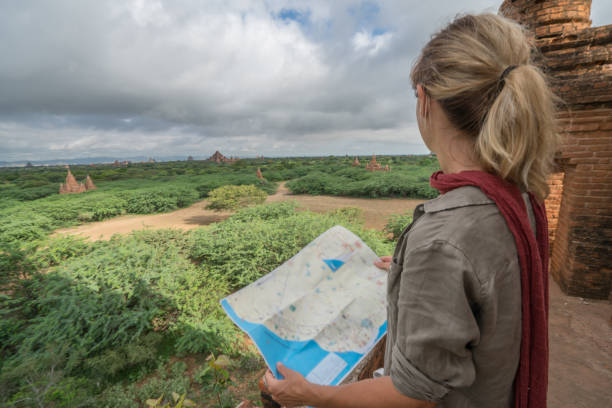Country Guides
Country Travel Guides: Comprehensive Information for Your Next International Adventure
Embarking on an international adventure can be both exciting and overwhelming. With so many destinations to choose from and various factors to consider, having a detailed travel guide for each country can make your journey smoother and more enjoyable. This comprehensive guide will provide you with essential information for planning your next international trip, ensuring you’re well-prepared for an unforgettable adventure.
1. Destination Overview
- Geography and Climate: Understand the geographical location and climate of your destination. This helps you pack appropriately and plan activities that are suitable for the weather. For instance, knowing whether a country experiences a tropical climate or seasonal variations can affect your clothing choices and travel dates.
- Cultural Highlights: Learn about the country’s cultural norms, traditions, and historical landmarks. This knowledge will enrich your travel experience and help you respect local customs and etiquette.
2. Visa and Entry Requirements
- Visa Requirements: Check if you need a visa to enter the country and the application process. Some countries offer visa-on-arrival or e-visa options, while others require a visa to be obtained before traveling.
- Passport Validity: Ensure your passport is valid for at least six months beyond your planned stay. Some countries have specific passport validity requirements for entry.
3. Accommodation Options
- Types of Accommodation: Explore various accommodation options, including hotels, hostels, vacation rentals, and guesthouses. Consider factors such as location, amenities, and reviews to choose the best option for your needs and budget.
- Booking Tips: Book accommodations in advance, especially during peak travel seasons. Use reliable booking platforms and read reviews from previous guests to ensure a comfortable stay.
4. Transportation
- Getting Around: Familiarize yourself with local transportation options, including public transit, taxis, rideshares, and car rentals. Understand how to navigate the city or country efficiently and safely.
- Airport Transfers: Research transportation options from the airport to your accommodation. This could include shuttle services, taxis, or public transit.
5. Health and Safety
- Health Precautions: Check for any required vaccinations or health advisories for your destination. Pack a basic first-aid kit and any necessary medications.
- Safety Tips: Stay informed about safety concerns and local emergency numbers. Practice general safety precautions, such as avoiding risky areas and keeping your belongings secure.
6. Currency and Banking
- Local Currency: Learn about the local currency and exchange rates. It’s helpful to know whether credit cards are widely accepted or if you’ll need to carry cash.
- ATMs and Exchange Services: Identify where you can access ATMs or currency exchange services. Many countries have exchange kiosks at airports, but it’s often better to use local banks or ATMs for better rates.
7. Communication
- Language: Research the primary language spoken in your destination and consider learning a few basic phrases. Knowing key phrases can help you navigate daily interactions and enhance your travel experience.
- Internet and Connectivity: Determine whether you need a local SIM card or if your current phone plan offers international coverage. Wi-Fi availability is also an important consideration.
8. Local Cuisine and Dining
- Popular Dishes: Explore the local cuisine and must-try dishes. Research popular restaurants, street food vendors, and dining experiences that reflect the country’s culinary culture.
- Dietary Restrictions: If you have dietary restrictions, check how easily you can accommodate them in the local food scene. Knowing how to communicate your needs in the local language can be helpful.
9. Cultural Etiquette
- Social Norms: Learn about local customs and etiquette, such as appropriate dress codes, tipping practices, and behavior norms. Respecting these norms will help you blend in and avoid unintentional offenses.
- Local Festivals and Events: Check if there are any local festivals or events happening during your visit. Participating in these celebrations can provide a unique and immersive cultural experience.
10. Emergency Information
- Emergency Contacts: Have a list of local emergency contacts, including the nearest embassy or consulate, local police, and medical facilities.
- Travel Insurance: Purchase travel insurance that covers medical emergencies, trip cancellations, and lost or stolen belongings. Ensure you understand the coverage details and how to make claims if needed.
Conclusion
A well-planned international trip begins with thorough research and preparation. By using this comprehensive travel guide, you can navigate your destination with confidence, ensuring a smooth and enjoyable experience. From understanding local customs and securing accommodation to managing health and safety, being informed and prepared will help you make the most of your adventure. Happy travels!

